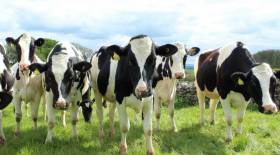Displaying items by tag: Animal Rights
Operators Stena And Irish Ferries Targeted in Animal Rights Group Bid to Halt ‘Vital’ Live Exports
#FerryNews - The animal rights Group Compassion in World Farming Ireland is to target key ferry operators in their latest bid to halt live exports.
The group writes Independent.ie is to target Niclas Martensson CEO of Stena Line and Eamonn Rothwell CEO of Irish Ferries Limited with a petition signed by 4,000 people.
In the petition the Group call on Stena Line and Irish Ferries to stop what they describe as ‘profiting from this inhumane industry’ by allowing their ferries to carry young calves and cattle destined for fattening and slaughter on the continent.
The live export trade is generally seen in the farming community as vital in stimulating price competition and providing an alternative market outlet for farmers.
Indeed the Minister for Agriculture, Michael has said the ongoing search for new third country markets is a priority for his Department, particularly in the context of Brexit.
The Minister has said that his Department attaches the highest significance to animal welfare in the context of the live export trade.
To read comments by the Minister click here in addition Stena RoRo's operated Stena Carrier which earlier this year carried calves to the continent.
#FerryNews - Animal welfare groups internationally have slammed the “disgraceful” calls from the Irish Farmers’ Association (IFA) to increase the live export of Irish livestock in 2018.
As the Green News.ie writes, the comments come in response to calls from the IFA’s National Livestock Chairman, Angus Woods at a Bord Bia seminar on live exports in Tullamore, Co Offaly yesterday.
Mr Woods said that the Minister of Agriculture, Michael Creed must “put all the necessary resources in place” to facilitate an increase in exports.
The IFA also met with senior officials from the Department of Agriculture to discuss transport options for the export of livestock.
Stena Line is due to refit their existing vessel (as reported previously on Afloat) which is used to transport live exports and the IFA want to ensure that a replacement ship is available for peak export weeks in February and March.
“It must be of the highest priority to Minister Creed that the new arrangements can deal with our live exports and shipping requirements during this peak export period. Market access is absolutely critical,” Mr Woods said.
To read much more including what are claimed as 'horrendous journeys' according to Campaigns at Compassion in World Farming, click here.





























































